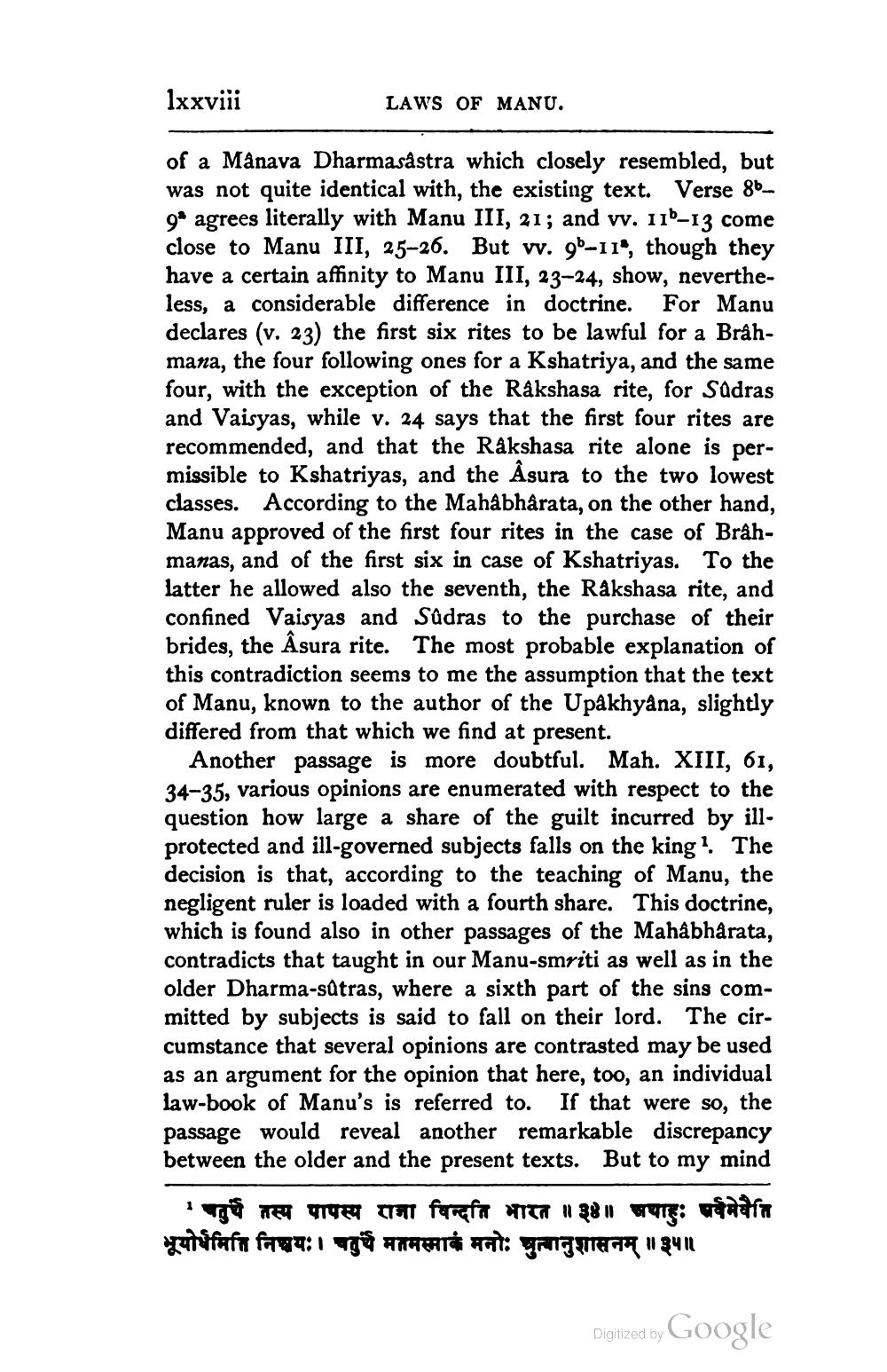________________
lxxviii
LAWS OF MANU.
of a Manava Dharmasastra which closely resembled, but was not quite identical with, the existing text. Verse 86_ 9* agrees literally with Manu III, 21; and v. 116-13 come close to Manu III, 25–26. But v. 96-11', though they have a certain affinity to Manu III, 23–24, show, nevertheless, a considerable difference in doctrine. For Manu declares (v. 23) the first six rites to be lawful for a Brahmana, the four following ones for a Kshatriya, and the same four, with the exception of the Rakshasa rite, for Sadras and Vaisyas, while v. 24 says that the first four rites are recommended, and that the Rakshasa rite alone is permissible to Kshatriyas, and the Asura to the two lowest classes. According to the Mahabharata, on the other hand, Manu approved of the first four rites in the case of Brahmanas, and of the first six in case of Kshatriyas. To the latter he allowed also the seventh, the Rakshasa rite, and confined Vaisyas and Sudras to the purchase of their brides, the Asura rite. The most probable explanation of this contradiction seems to me the assumption that the text of Manu, known to the author of the Upakhyana, slightly differed from that which we find at present.
Another passage is more doubtful. Mah. XIII, 61, 34-35, various opinions are enumerated with respect to the question how large a share of the guilt incurred by illprotected and ill-governed subjects falls on the king? The decision is that, according to the teaching of Manu, the negligent ruler is loaded with a fourth share. This doctrine, which is found also in other passages of the Mahabharata, contradicts that taught in our Manu-smriti as well as in the older Dharma-sútras, where a sixth part of the sins committed by subjects is said to fall on their lord. The circumstance that several opinions are contrasted may be used as an argument for the opinion that here, too, an individual law-book of Manu's is referred to. If that were so, the passage would reveal another remarkable discrepancy between the older and the present texts. But to my mind
चतुर्षे तस्य पापस्य राना विन्दति भारत ॥३४॥ अथाहुः पर्वमेवैति भूयोर्धमिति निधयः। चतुर्थे मामस्माकं मनोः श्रुत्वानुशासनम् ॥३५॥
Digitized by Google




